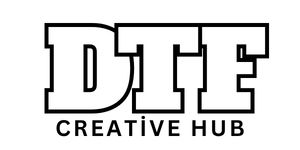Austin DTF has emerged as a provocative touchstone in Austin’s nightlife and online dating conversations. This introductory piece explains the DTF meaning and how the acronym is interpreted across different circles. By examining how Austin DTF slang is used, you’ll learn about consent cues, respect, and the fine line between playful banter and coercion. The discussion also maps DTF controversy and the varied Austin community reactions that shape regional dialogue. Ultimately, the article offers practical guidance and a DTF slang guide to help readers navigate conversations safely and respectfully.
Exploring this topic through alternative terms helps readers connect it to broader dating language. In other words, the concept can be described as signals of openness to social engagement, casual banter, or flirtation within contexts that respect consent. From an LSI standpoint, related phrases such as casual dating slang, consent-focused language, and local Austin dating norms accompany the core idea and improve search relevance. Rather than repeating the acronym, the narrative invokes synonyms and descriptive phrasing that convey intent while avoiding misreadings. By grounding the discussion in these LSI-friendly terms, the piece maps how similar ideas appear across bars, campus spaces, and online profiles, reinforcing the goal of clear, respectful communication.
Understanding the DTF Meaning in Austin: From Meaning to Consent-Led Language
DTF meaning varies by context. In online dating and nightlife conversations, DTF often signals interest in a casual encounter, but it can also mean down to flirt or simply express enthusiasm to socialize. In Austin DTF slang, the interpretation is especially tied to tone, setting, and explicit consent cues. The same acronym can be playful in one circle and off-putting in another. This is why readers should consider the surrounding language and the immediate social norms. This section touches on the DTF meaning and how Austin DTF slang frames it for local audiences.
To navigate safely, interpret DTF meaning through consent cues, body language where relevant, and the context. In Austin, venues like bars, live music venues, and campus events shape how the phrase lands. A DTF meaning that’s respectful in a casual chat should avoid coercive language and should invite clear consent. For readers, the DTF slang guide can help spell out acceptable phrasing and signals that keep conversations constructive.
Austin DTF Slang: Local Flavor, Evolution, and Social Signals
In Austin, DTF slang evolves in the city’s nightlife, tech meetups, and college culture. The Austin DTF slang you’ll see in bios or chats blends spontaneity with a sense of humor, but it’s also under growing scrutiny about consent and respect. The DTF slang guide for the city helps explain when the language is catapulted by enthusiasm versus when it becomes risky or exclusionary. A reader can see how the slang spreads through dating apps, social media, and bar conversations, creating a distinctive local flavor.
Because meanings shift with audience, readers should watch for cues and adapt. Even a playful Austin DTF slang line can backfire if it ignores enthusiastic consent or misreads boundaries. The key is to pair any flirtatious language with respect, escalate only with consent, and be ready to pause or reframe the conversation. The DTF meaning in this local culture is not a license to push; it’s a prompt to check in with openness and mutual interest.
DTF Controversy in Austin: Debates on Respect, Consent, and Boundaries
The DTF controversy in Austin reflects broader debates about objectification, consent norms, and inclusivity. Critics argue that DTF slang can reduce people to sexualized objects or pressure others into uncomfortable situations, especially in public or semi-public spaces. Proponents claim it’s a casual shorthand within a flirting culture, so long as it’s anchored by explicit consent and mutual respect. In this context, the term DTF controversy has circulated across campus, nightlife venues, and online forums, prompting discussions about how language shapes behavior.
Community responses vary widely: some call for clearer boundaries; others advocate for education around consent literacy. The Austin community reactions include conversations in student groups, neighborhood events, and local media that explore how slang interacts with respect, autonomy, and safety. This segment emphasizes that the controversy isn’t about erasing slang, but about aligning it with responsible dating norms and inclusive communication.
Austin Community Reactions to DTF Slang: Voices, Boundaries, and Education
Responses to DTF slang in Austin are mixed across age groups and spaces. Supporters may view it as a casual signal of interest when paired with respect, while cautious listeners emphasize clear consent and the risk of misinterpretation in loud social environments. Critical voices call for more explicit education about consent and boundaries, especially in venues where anonymity or crowd dynamics complicate communication. The discussion around DTF slang in Austin thus functions as a learning moment for healthy dating practices and consent literacy.
Local groups, campus programs, and community organizations often use slang discussions to promote respectful dialogue. The Austin community reactions show that slang can spark constructive conversations about autonomy and relationship norms, rather than simply being taboo. Readers can take away practical examples on how to engage in conversations with care, invite explicit consent, and adjust language when someone signals discomfort.
DTF Slang Guide for Austin: Practical Tips for Respectful Communication
A practical approach to the Austin DTF slang is to treat it as a cue that requires care. Follow the DTF slang guide principles: tailor language to your audience, prioritize explicit consent, and use inclusive wording that respects diverse relationship preferences. In online spaces, be mindful of bios and messages, and in real life, watch tone, pace, and nonverbal cues to ensure comfort for all parties involved. The goal is to keep the conversation safe, respectful, and enjoyable.
Additional tips include distinguishing between casual and professional contexts, pausing when unsure, and being ready to apologize if someone signals discomfort. The language should adapt to feedback, and educators or community leaders may use DTF discussions as opportunities to promote consent literacy. By integrating these practices, readers can navigate Austin’s social scene with confidence and care, while recognizing how DTF meaning and Austin DTF slang interact with respect and inclusion.
Frequently Asked Questions
What does DTF mean in Austin DTF slang, and how is it commonly used in Austin conversations?
In Austin DTF slang, DTF most often means ‘down to flirt’ or ‘down to have fun,’ though meanings can vary by context. In everyday Austin conversations, the phrase signals interest but should be read alongside tone, body language, and explicit consent cues. When you see phrases like ‘Austin DTF slang’ or hear ‘DTF meaning’ in local chats, use caution and prioritize respectful communication; refer to a DTF slang guide for context and boundaries.
DTF controversy and Austin community reactions: what should you know?
The DTF controversy centers on concerns about objectification, consent, and boundary-testing. In Austin, community reactions range from supportive and playful to cautious or critical, depending on setting and tone. Understanding ‘DTF controversy’ helps readers interpret how locals discuss dating slang, consent, and respect, and why many people favor clear verbal consent and inclusive language.
How can you use Austin DTF slang responsibly while respecting consent?
Use Austin DTF slang with explicit consent, read social cues, and favor inclusive language. Check for enthusiastic agreement before escalating, and avoid coercive phrasing. A quick reference to the DTF slang guide and the concept of DTF meaning can help you stay respectful across different contexts.
Where do Austinites typically encounter Austin DTF slang online and offline?
Austin DTF slang appears in dating apps, social media bios, bar chats, clubs, and campus events, as well as online forums discussing ‘Austin community reactions.’ Being mindful of the setting and consent is crucial, since the same slang can read as playful in some spaces and troublesome in others.
What are best practices from the DTF slang guide for constructive dialogue in Austin?
From the DTF slang guide, practice clear consent, read context, and adjust your language to your audience. Respect boundaries, apologize if misread, and keep slang separate from professional settings. These steps help align with Austin DTF etiquette while supporting respectful dating conversations.
| Topic | Key Points |
|---|---|
| What DTF means in general | DTF is an acronym with multiple meanings; interpretation depends on context, tone, and setting. It can signal a sexual invitation in some circles or mean down to flirt/have fun in others. The safest approach is to interpret DTF from surrounding language, body cues, and explicit consent. |
| Austin DTF slang context | Austin’s nightlife, dating culture, and social scenes shape a local flavor. Meanings may differ across bars, dating apps, and campus discussions. The same acronym can be harmless in one context and a red flag in another if consent is not clear. |
| Evolution in urban culture | Slang often blooms in urban hubs; in Austin, live music and a vibrant social scene influence usage. Slang mixes spontaneity with respect and consent, aiming to balance candidness with safety. |
| Nuances to watch for | Clarify intent; look for clear consent cues; consider the setting; be mindful of power dynamics; avoid coercive language. |
| Controversies | Objectification concerns; debates about consent and boundaries; context and audience matter; representation and inclusivity issues. |
| Austin community reactions | Reactions range from supportive and cautious to critical and educational, reflecting diverse views and the need for consent literacy. |
| Best practices | Know your audience; prioritize explicit consent; use inclusive language; keep slang out of professional settings; apologize and adjust if discomfort is shown; use slang to discuss consent literacy. |
| DTF slang guide implications | View DTF as a signal to communicate with care, not a license to override consent. Rely on verbal consent, read cues, and adjust language if hesitation is shown. |
| Digital vs real-life contexts | Online spaces spread slang quickly (bios, messages); in-person interactions require heightened sensitivity and context-aware communication. |
Summary
Austin DTF in contemporary urban culture highlights how slang travels across nightlife, dating, and online dialogue. The table above distills the key points: DTF meanings vary by context; Austin-specific nuances matter; consent, respect, and audience awareness are essential; controversies and community reactions shape best practices; and a cautious, inclusive approach benefits both online and real-life interactions. In descriptive terms, the topic showcases how language evolves in response to social norms and consent expectations within the Austin community.

